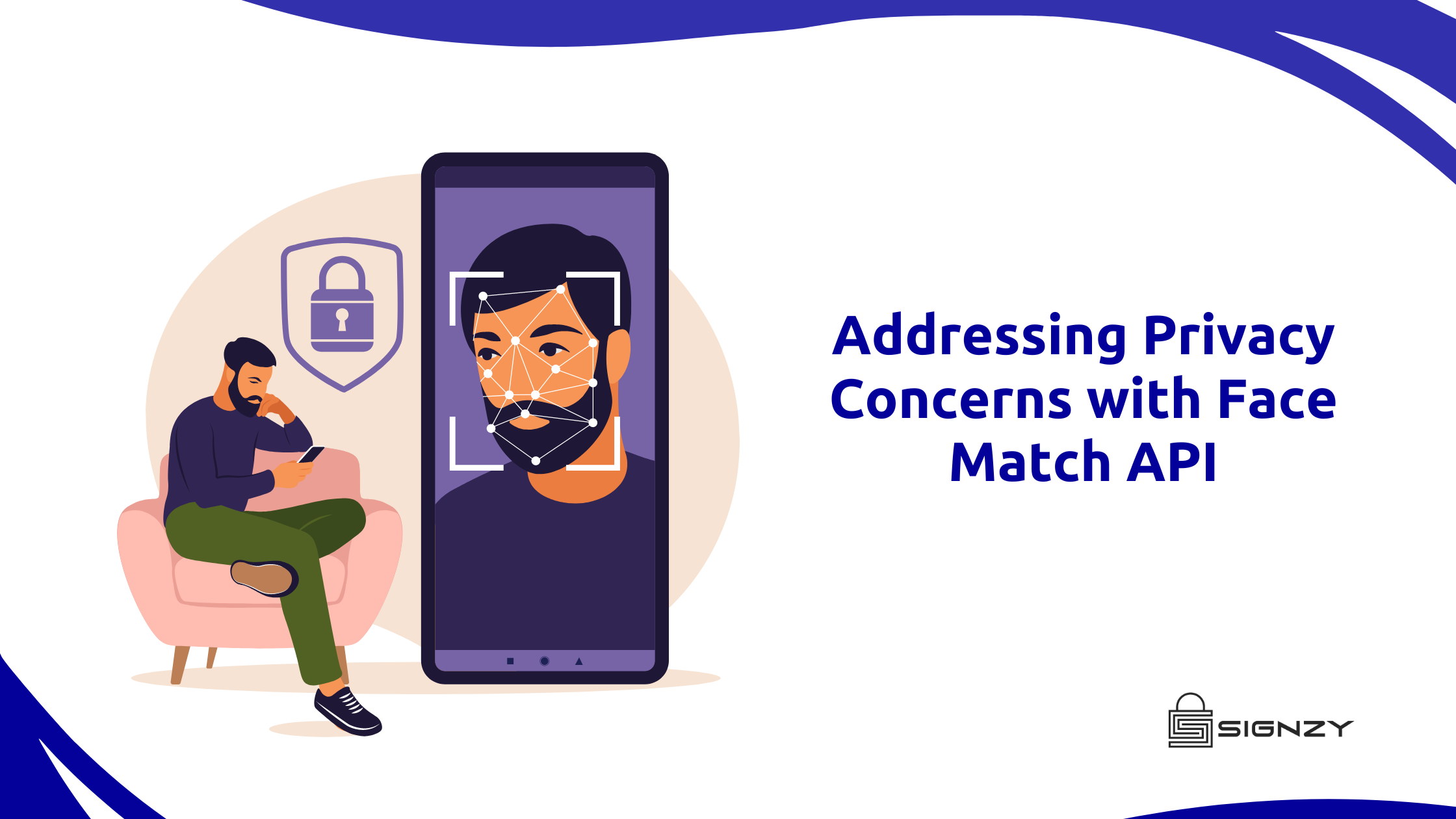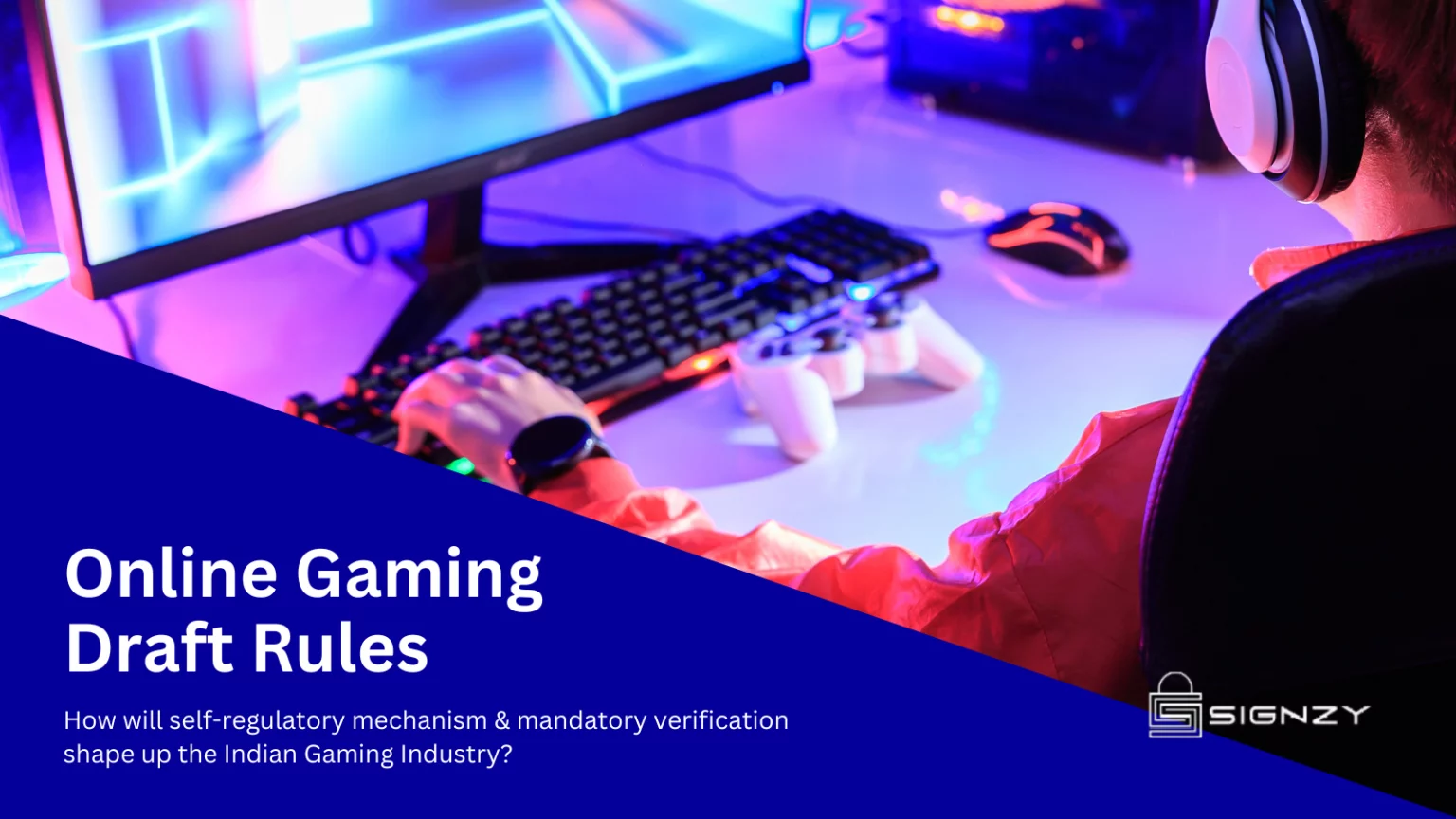Financial institutions and organizations worldwide face an uphill battle regarding fraud prevention. With fraudsters’ ever-evolving tactics, traditional identification verification methods aren’t sufficient. The consequences of falling victim to fraud can be devastating for the institutions and their customers, who entrust them with sensitive personal information.
This is where Signzy’s Face-Match API steps in as a game-changer. By harnessing the power of facial recognition technology, we offer a robust solution to combat fraud effectively.
With our solution, financial institutions can perform identity verification effortlessly and accurately. By comparing a user’s live image with their stored reference image, any discrepancies or signs of fraudulent activity can be swiftly detected. This revolutionary tool provides an added layer of security that significantly reduces the risk associated with fraudulent transactions.
Our face-match technology goes beyond verifying identities; it also helps streamline customer onboarding processes by eliminating manual interventions and reducing human error. This enables organizations to enhance operational efficiency while maintaining stringent compliance standards.
However, it is understandable that users and businesses would be wary of how their data is handled. In this article, learn more about how Signzy protects data from falling into the wrong hands.
The ongoing concerns around data privacy
Data privacy is a pressing concern in today’s digital age, where personal information is constantly shared and stored online. Addressing these concerns becomes even more crucial with the increasing use of facial recognition technology and identity verification systems.
One major worry is the potential misuse or unauthorized access to sensitive data. As financial institutions and organizations collect vast amounts of personal information for fraud detection and compliance purposes, individuals are rightfully concerned about how their data will be protected.
Another concern revolves around consent management. Individuals want assurance that their consent is sought before their data is used. They also expect transparency regarding what type of data will be collected, how long it will be retained, and who will have access to it.
Signzy takes data privacy and compliance seriously. Addressing concerns around data privacy requires a comprehensive approach involving transparency in consent management practices and stringent security protocols. Only then can individuals feel confident in entrusting their personal information to organizations.
Is Signzy’s Face-Match API Secure?
Yes. Signzy takes data privacy and compliance seriously, ensuring our facial recognition technology is secure. We have implemented advanced security protocols to protect user data from unauthorized access and hacking. Our face-match technology is also verified and certified by leading security agencies.
Regarding the security of personal data, organizations and individuals alike have valid concerns. With the rise in fraudulent activities, financial institutions and organizations must implement robust measures to combat fraud effectively. Signzy’s Face-Match API offers a secure solution for identity verification through facial recognition technology. But what sets it apart from other solutions? The answer lies in its commitment to data privacy and compliance.
One primary concern surrounding facial recognition technology is the potential misuse of personal data. However, we address this concern by implementing stringent security protocols that ensure data protection at all process stages.
From capturing and storing images securely to encrypting sensitive information, Signzy goes above and beyond industry standards to safeguard user data. Additionally, our face-match algorithm uses advanced machine-learning techniques that are continually updated to stay ahead of evolving threats.
The need for transparency when it comes to data privacy
The need for transparency regarding data privacy is of utmost importance in today’s digital age. With the increasing amount of personal information being shared online, individuals and organizations are rightfully concerned about who has access to their data and how it is used.
In the context of facial recognition technology and identity verification, transparency becomes even more crucial. Users want to know that their biometric data is handled securely and responsibly. They want assurance that their face images are not stored or shared without consent.
At Signzy, we understand these concerns and prioritize data privacy above all else. We strive to be transparent with our users by clearly explaining how our Face-Match API works and what measures we have to protect their data.
We ensure transparency through clear communication about the purpose for which users’ facial images are collected. We always obtain explicit user consent before storing or processing any biometric data.
Additionally, we use advanced security protocols to safeguard the confidentiality and integrity of user data.
Security protocols used along with data and consent management
To safeguard user information, our Face-Match API employs industry-leading encryption algorithms. This ensures that all data transmitted between users and our platform is securely encrypted, making it nearly impossible for unauthorized individuals to access or manipulate it.
In addition to encryption, we also implement strict access controls. Only authorized personnel are granted access to user data; even then, they only have permission for specific purposes within their job responsibilities. This helps prevent any potential misuse or mishandling of sensitive information.
Furthermore, we regularly update and monitor our systems for any vulnerabilities or threats. Our dedicated team monitors and promptly addresses emerging security risks with necessary patches or updates.
By implementing these rigorous security protocols and comprehensive data and consent management practices, Signzy prioritizes safeguarding customer privacy throughout identity verification.
Signzy supports data protection and digital privacy
Data privacy is a fundamental right that every individual deserves. With increasing instances of online breaches and unauthorized access to personal information, it has become imperative for organizations to prioritize protecting sensitive data. Signzy recognizes this need and proactively safeguards user confidentiality through encryption techniques and strict access controls.
With technological advancements like Signzy’s Face-Match API and our unwavering commitment towards transparency and protection of user data privacy rights, financial institutions can rest easy knowing that client information remains safe.




